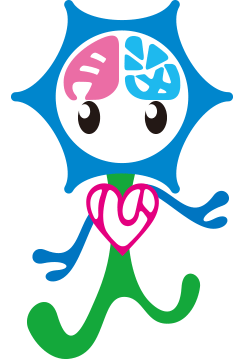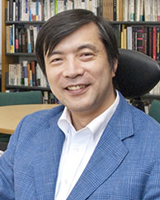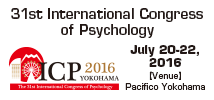Neuroscience 2016
be sound, brain and mind
- Date
- July 20-22, 2016
- Venue
- Pacifico Yokohama
- President
- Atsushi Iriki (RIKEN Brain Science Institute)

Greetings

be sound, brain and mind
Atsushi Iriki, President
39th Annual Meeting of the Japan Neuroscience Society
RIKEN Brain Science Institute
Recently various "mental problems" have become a major interest in our society. To make our daily lives prosperous and happy, and to resolve and understand various problems we are facing, uncovering the mechanisms of the human mind is the major goal of neuroscience. This year the 39th Annual Meeting of the Japan Neuroscience Society and the 31st International Congress of Psychology will be held consecutively at the same venue. Under the theme of "be sound, brain and mind", top international and domestic researchers conducting the state-of-the-art neuroscience, together with Japan's next generation researchers, will take this as an opportunity to elucidate the mechanisms of the brain and mind through promotion of a wide range of neuroscience research fields, across clinical medicine and psychology, and to the molecular and cellular biological levels.
However, a gap still exists between the "mind" as a psychological phenomenon and the function of the "brain" as a biological organ. Because a human mind is unique and diverse, and changes through experience and one’s life history, it matches poorly with the essence of modern natural science which pursues simple reductionism, reproducibility and universality. Notwithstanding, we all agree that our "mind" is produced by our "brain", and it is also human nature to pursue its understanding. Neuroscience has just reached a tipping point where it is within reach of lay people’s expectations. We neuroscientists are trying to address it seriously.
In order to realize such an enterprise, it is necessary for researchers with different perspectives to face each other with mutual respect, and maintain active interactions; for example, assembling valid hypotheses and examining each one carefully through empirical experiments, and then feeding back the results to re-examine the original hypotheses. Of course the hypotheses might be refuted or require modification, but repeating this process many, many times is the surest way to achieve this challenging goal. Neuroscience is now thought to be nearing the detection of the mechanisms of the human mind, thereby responding to the demands of modern society and giving neuroscientists an uplifting feeling by meeting an academic Grand Challenge, and also the genuine thrill as a responsible scholar.
Along these lines, in order to secure these interactions we are planning a variety of collaboration and joint events in cooperation with the International Congress of Psychology. To understand the brain and mind is to understand the "human". If we could create novel approaches, hitherto impossible, to translate the workings of the mind into the vocabularies of conventional natural scientific functional molecules and neural circuitry, we could gain the insight needed to rapidly overcome a variety of mental problems that modern society is facing – and thereby obtain sound brain and mind. I heartily hope that this joint meeting will become such an opportunity.



